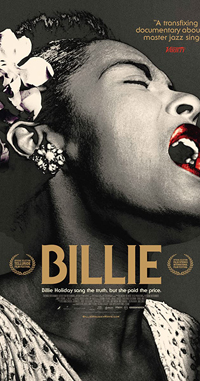 Billie (2020)
Billie (2020)
In 1971, the New York journalist Linda Kuehl (died 1978) determined that she would write the definitive biography of the "world's greatest jazz vocalist" Billie Holiday (1915–1959). Toward that end, across eight years she amassed some 200 hours of taped interviews, notes, and preliminary material (police files, transcripts of court cases, royalty statements, shopping lists, hospital records, private letters, transcripts, and fragments of unfinished chapters). Her goal, she said, was to write an account of Holiday that was non-sentimental, and that would present her as she "really was." Tony Bennett was one of the many people that Kuehl interviewed, and when he heard this he said, "that will be an interesting book, she really lived a wild life." Kuehl interviewed just about anybody who would talk to her — singers, producers, band members, family members, friends, a pimp, the warden of the prison where Holiday was incarcerated for a year, a roommate, and federal drug agents. Kuehl died under suspicious circumstances before her project was finished, and the tapes were never heard. In this documentary, director James Erskine narrates Holiday's story through the use of these fifty-year-old, scratchy, cassette tapes. The result is what you might expect, given the extensive studies that have already been published about Holiday — a remarkably gifted talent that was overshadowed by a tragic and turbulent personal life: sexual abuse at an early age, pimping and being pimped, promiscuous bi-sexuality, hard core drug and alcohol addiction, prison, racist persecution, misogyny, and a series of abusive men who, in one interpretation, fed her masochistic streak. "She was an extremist," said one interviewee. Her genius, observed another, was that her singing expressed true experiences that were deeply felt — to take just one example, the song "Strange Fruit" about lynchings in America. In the end, Tony Bennett was right. I watched this movie on Amazon Prime Video.
Dan Clendenin: dan@journeywithjesus.net


